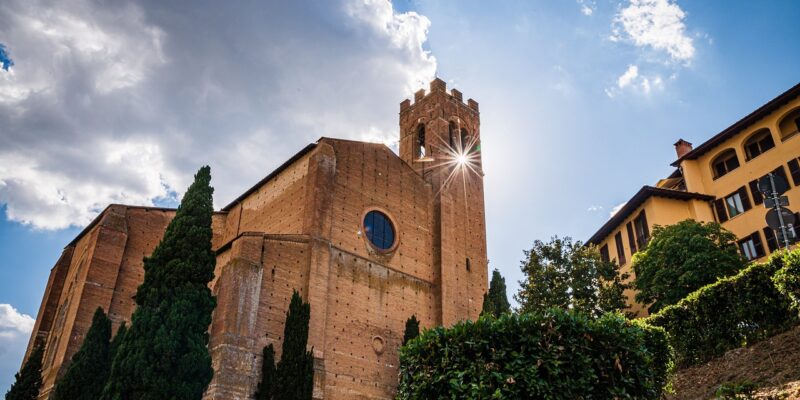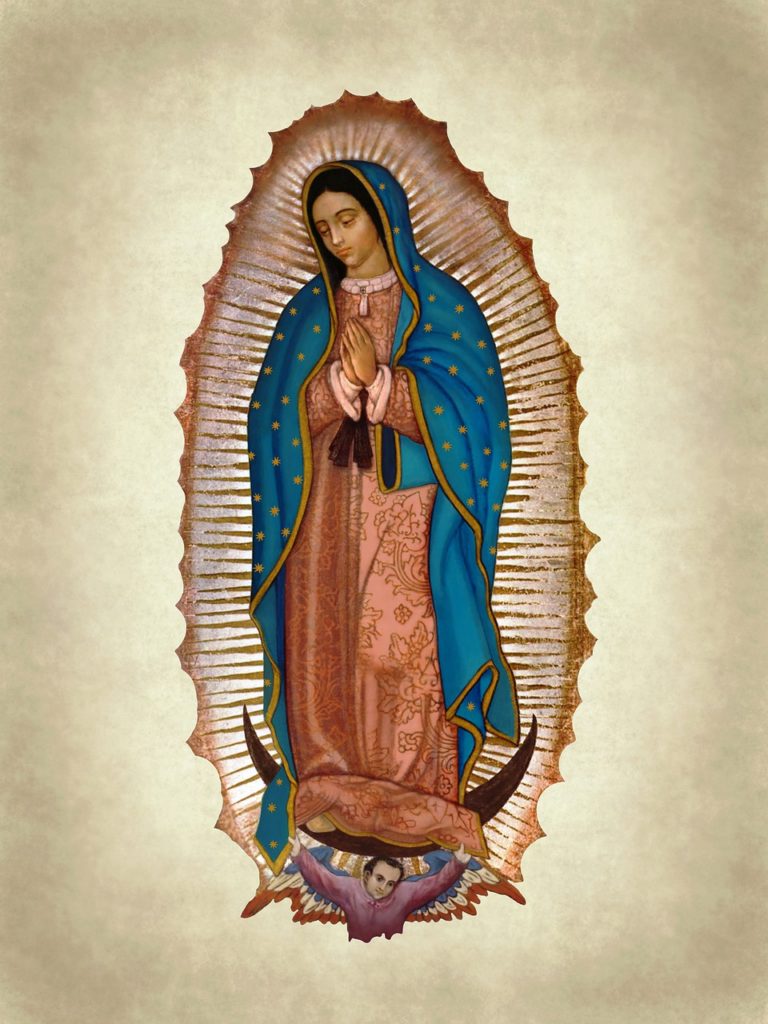The book of Judith is an Old Testament book of the Bible in the Catholic Church. Although readings from Judith are rarely used in the Church’s lectionary, the book is filled with helpful insights on how to live a holy life in the light of the faith we profess at the holy sacrifice of the Mass.
Overview of the Book of Judith
| Description | Book of Judith |
|---|---|
| Date | 2nd Century B.C .(probably) |
| Location | Bethulia (hill country in Judea) |
| Author | Unknown |
| Old Testament | Biblical Novella (2nd book) |
| Themes | Deliverance of God’s People |
| Themes | Faith, Courage, and Devotion |
| Judith | Prefigures the Blessed Virgin Mary |
| Judith | Prefigures the Church |
Summary of the Book of Judith

The book of Judith tells a remarkable story about a faithful and courageous Jewish woman, Judith, who bravely comes to the defense of her people against insurmountable odds. A vast Assyrian army sought to claim their land for the kingdom of Nebudchadnezzar, who claimed himself to be god over the whole earth. Through the power of prayer and faith in God, Judith went forth into the enemy camp, struck the head of their general Holofernes down, and returned to Bethulia, her city that had been under siege. From there, the Israelites routed the Assyrian army who scattered with fear after hearing their leader had been killed. The Israelites hailed Judith as the most blessed of all the women before the Most High God.
Topics From the Book of Judith

Bible
The Book of Judith is an Old Testament book of the Bible in the Catholic Church, in the Biblical Novella section. It is located between the the Book of Tobit and the Book of Esther. Although it is not an accepted book of the Bible in the Jewish faith or with various Protestant denominations, it was accepted by most of the early Church Fathers, and it was also accepted at the early church synods of Hippo and Carthage.
Message
The main message of the Book of Judith in light of the Catholic faith is to have faith in God and be obedient to His commandments. It is obedience to the commandments and devotion (all of which Judith displayed) that helps free us from the tyranny of sin.
Location
The exact location of Bethulia (Judith’s hometown) is unknown. Bethulia was mentioned to be in hill country of Judah near mountain passes that lead towards Jerusalem (Jdt 4:6). It should be noted the Hebrew name for Bethulia means “virgin.”
Prefigurements

The Blessed Virgin Mary
“You are the glory of Jerusalem! You are the great pride of Israel! You are the great boast of our nation! Judith 15:9b
Judith exemplified Mary by the way she lived her life. The author of the book depicted Judith as an ideal Jewish woman. She was faithful to the Mosaic law. She also went above and beyond the requirements of the Old Covenant with ascetical practices such as frequent fasting, detachment, and she wore penitential garments. Like the Blessed Virgin Mary, she was a widow, and she remained chaste before God.
Throughout the Old Covenant the mission of many holy women prepared for that of Mary…against all human expectation God chooses those who were considered powerless and weak to show forth His faithfulness to His promises: Hannah, the mother of Samuel; Deborah; Ruth; Judith and Esther; and many other women. Mary “stands out among the poor and humble of the Lord, who confidently hope for and receive salvation from Him. After a long period of waiting the times are fulfilled in her, the exalted Daughter of Sion, and the new plan of salvation is established.” Source: Catechism of the Catholic Church #489
The Catholic Church
I will put enmity between you and the woman, and between your offspring and hers; They will strike at your head, while you strike at their heel. Genesis 3:15
Judith was sent by God on mission to strike the enemy with a fatal blow to the head. In faith, she prayed to God for Divine assistance to complete the mission. Similarly, in the New Testament, Christ declares that the gates of hell will not prevail against His Church. Christ struck a fatal blow to the head of our enemy, the devil, at Calvary. Calvary means “the skull.” Victory is achieved by the Blood of Christ and by the witness of the saints. As Catholics we are called to breach “the gates of hell” just as Judith did.
“The Catholic Church glories in every deed of Christ. Her supreme glory, however, is the cross.” + St. Cyril of Jerusalem
The Story and Characters of the Book of Judith
Dramatical Story Filled with Wisdom
It remains uncertain whether the book of Judith is historical, fictional, or allegorical. Regardless, the book of Judith tells a dramatical story filled with wisdom and lessons in spiritual warfare that can help Catholics combat evil influences in their lives.
Judith
Judith was prudent of heart, discerning in judgment, and quite virtuous. Judith 8:7b
Judith was a brave woman of faith and virtue who the Church has declared as a type of the Virgin Mary. Her name, Judith, means, “Jewish woman.” Judith feared God and was obedient to His commandments. She was wise and beautiful. She was also zealous and dedicated to the sovereignty of her nation Israel and her people.
Judith’s Maid
Then Judith and her maidservant went out…and crossed the valley. Judith 10:10
Judith’s maid was with her throughout the campaign. She played a supporting role in saving the people of Bethulia from the army of Holofernes. In one of Judith’s final acts of charity, she let her maid go. The maid might be symbolic of her guardian angel. It also implied that Judith felt as if she was protected by the Lord’s angel (Jdt 13:16).
Holofernes
The heart of Holofernes was in rapture over her…Judith 12:16b
Holofernes was the general of the Assyrian army, and 2nd in command to King Nebudchadnezzar. He was the antagonist and villain of the story. He was loyal to his king, and he was shrewd with many of his military decisions, but he was filled with pride and licentiousness, and that became his downfall when he faced Judith.
Achior
“Who are you, Achior…to prophesy among us as you have done today?” Judith 6:2a
Achior was an Ammonite general and was serving in Holofernes’ army. He was courageous enough to speak the truth about the Israelites and the Most High God. He was rejected by Holofernes for this. The Israelites spared his life, and he converted.
Uzziah
Uzziah said to her, “Blessed are you, daughter, by the Most High God!” Judith 13:18a
Uzziah was one of the rulers of the city of Bethulia. His name means, “God is my strength.” Uzziah played a pivotal role in calming the people of city down from outright surrendering to Holofernes before Judith lead her people to victory. He also mistakenly put God to the test during the ordeal, and Judith admonished him for it.
Joakim
Joakim instructed them to keep firm hold of the mountain passes. Judith 4:7a
Joakim was the high priest of Jerusalem, and the first one since the Babylonian Exile. He was aware of the possibility of annihilation from Holofernes and his vast army. He performed acts of penance and made offerings to God on behalf of his people.
Nebudchadnezzar
Then Nebuchadnezzar fell into a violent rage against all the land. Judith 1:12a
Nebudchadnezzar was king of the rival army in the book of Judith. He was merciless to anyone who opposed him, and he even declared himself to be lord of all the earth.
Spiritual Wisdom from the Book of Judith

The Bible is the Road to God’s Wisdom
The book of Judith is filled with wisdom. There is much to be learned and applied into our daily lives to help us on our journey. On thing to keep in mind is that Judith and the people of Bethulia achieved victory from their ordeal, although it was not easy for them. It was God who won the battle for them. Judith was formed in God’s wisdom.
Wisdom
“So while we wait for the salvation that comes from God, let us call upon Him to help us, and He will hear our cry if it pleases Him.” Judith 8:17
Judith was exceedingly wise. Because she was obedient to God’s commandments and filled with virtue, she displayed God’s wisdom in the book by the way she lived her life.
Fear of the Lord
No one had a bad word to say about her, for she feared God greatly. Judith 8:8
Judith feared God, and she was devoted to Him. This was known by all. It says in Proverbs that the fear of the Lord is the beginning of wisdom (Prv 9:10).
Faith in God
“Strengthen me this day, Lord, God of Israel!” Judith. 13:7b
Judith had faith in God and prayed to Him for strength to accomplish her mission.
Detachment
She set up a tent for herself on the roof of her house, put sackcloth about her waist, and wore widow’s clothing. Judith 8:5
Judith, although a wealthy widow, preferred to live a humble and detached life. She frequently fasted, lived in a tent on the roof of her house, and she wore sackcloth.
Knowledge of Scripture
“So while we wait for the salvation that comes from God, let us call upon Him to help us, and He will hear our cry if it pleases Him. Judith. 8:17
Judith had a firm understanding of who God is and what they needed to do. The more we read and meditate on the scriptures, the better we can understand who God is.
Chastity and Purity
After bathing, she prayed to the Lord, the God of Israel, to direct her way for the triumph of her people. Then she returned purified. Judith 12:8-9a
Judith is also a role model for Catholics in terms of chastity and purity. She remained chaste after her husband’s death. Even when she was in the enemy’s camp, it says she bathed in a spring. Like the sacramental waters of Baptism, Judith kept herself purified. As Catholics, we are called to remain pure before the Lord (1 Pt 1:15-16).
Spiritual Warfare in the Book of Judith

Ancient Spiritual Warfare Principles Noted
If you read and listen to what exorcists and Catholic spiritual warfare experts teach the laity to do in spiritual combat to help achieve salvation in Christ, you should be able to correlate some of their teachings with what Judith and the Israelites did to help achieve victory. Spiritual warfare in the Catholic Church is based upon the Word.
Consecrations
Look with favor this day on the faces of those who are consecrated to you. Judith 6:19
The Israelites had consecrated themselves to God. In the Catholic faith, consecrations, such as consecrations to Our Lady can help provide spiritual protection.
Obedience to God’s Commandments
“As long as the Israelites did not sin in the sight of their God, they prospered, for their God, who hates wickedness, was with them.” Judith 5:17
Achior stepped up and bravely told the enemy general Holefernes that if the Israelites were living without sin in their lives his army would get soundly defeated by them in battle. Of course, this infuriated Holefernes, but Achior’s words proved to be true.
Gratitude
Let us give thanks to the Lord our God for putting us to the test. Judith 8:25
The battle in life does not depend on us, but rather on God whose providence has a margin in all things. Sometimes the bad is not a curse, but is given to us as a test.











